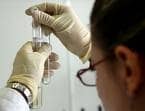Introduction
Biotechnology is a research oriented discipline which includes the fusion of biology and technology especially in the field of agriculture, food science, and medicine. It is generally a technological application that uses biological systems, living organisms, or derivatives thereof, to make or modify products or processes for specific use.Biotechnology is referred to genetic engineering technology which involves procedures for modifying biological organisms according to the needs of humanity, where modifications are made to native plants for improved food crops through artificial selection and hybridization. Biotechnology generally works on the science of genetic engineering. Biotechnology industries are also gaining new horizons thus enabling them to improve the quality of their products and increase the productivity of their systems after the fast development in modern techniques.


Biotechnology combines disciplines like genetics, molecular biology, biochemistry, embryology and cell biology, which are in turn linked to practical disciplines like chemical engineering, information technology, and robotics. Patho-biotechnology describes the exploitation of pathogens or pathogen derived compounds for beneficial effect. It is also associated with other subjects such as Health and Medicine, Cropping System and Crop Management, Agriculture and Animal Husbandry, Soil Science and Soil Conservation, Ecology, Bio-statistics, Cell Biology, Seed Technology, Plant Physiology etc.
There are many applications of biotechnology such as developing various medicines, vaccines and diagnostics, increasing productivity, improving energy production and conservation. Biotechnology's intervention in the area of animal husbandry has improved animal breeding. It also helps to improve the quality of seeds, insecticides and fertilizers. Environmental biotechnology helps for pollution control and waste management. The Department of Biotechnology in various countries has launched an integrated Manpower Development Programme which includes training of scientists/technologists for the expanding biotechnological research and developmental activities
CAREER
When concerned with career biotechnology has become one of the fastest growing sector has a great scope in future. Bio-technologists can find careers with pharmaceutical companies, chemical, agriculture and allied industries. They can be employed in the areas of planning, production and management of bio-processing industries. There is a large scale employment in research laboratories run by the government as well as the corporate sector. They can work in a government-based entity such as universities, research institutes or at private centers as research scientists/assistants.
Alternatively they may find employment in specialized biotechnology companies or biotech-related companies such as pharmaceutical firms, food manufacturers, aquaculture and agricultural companies. Companies that are engaged in business related to life sciences also consider a biotech degree relevant to their field. The work scope can range from research, sales, marketing, administration, quality control, breeders, technical support etc.Thus with a background of fundamental cell and molecular biology and applied science; graduates are well placed to take up careers in plant, animal or microbial biotechnology laboratories or in horticulture, food science, commerce and teaching.
PIONEER IN THE FIELD OF BIOTECHNOLOGY


Horoscope - Career for Zodiac Signs
In a competitive world, apart from one's own interest and inclination to his career, there are so many other factors which influence a person's life. In such situation don't panic just checkout the sun signs which would best suit "BIOTECHNOLOGY" as a career. They are
 Aries
Aries
 Scorpio
Scorpio
 Capricorn
Capricorn
 Aquarius
Aquarius
Eligibility : Click here for more information
Institutes : Some of the prominent institutions offering courses in Biotechnology can be had from the following links.. Click here for more information